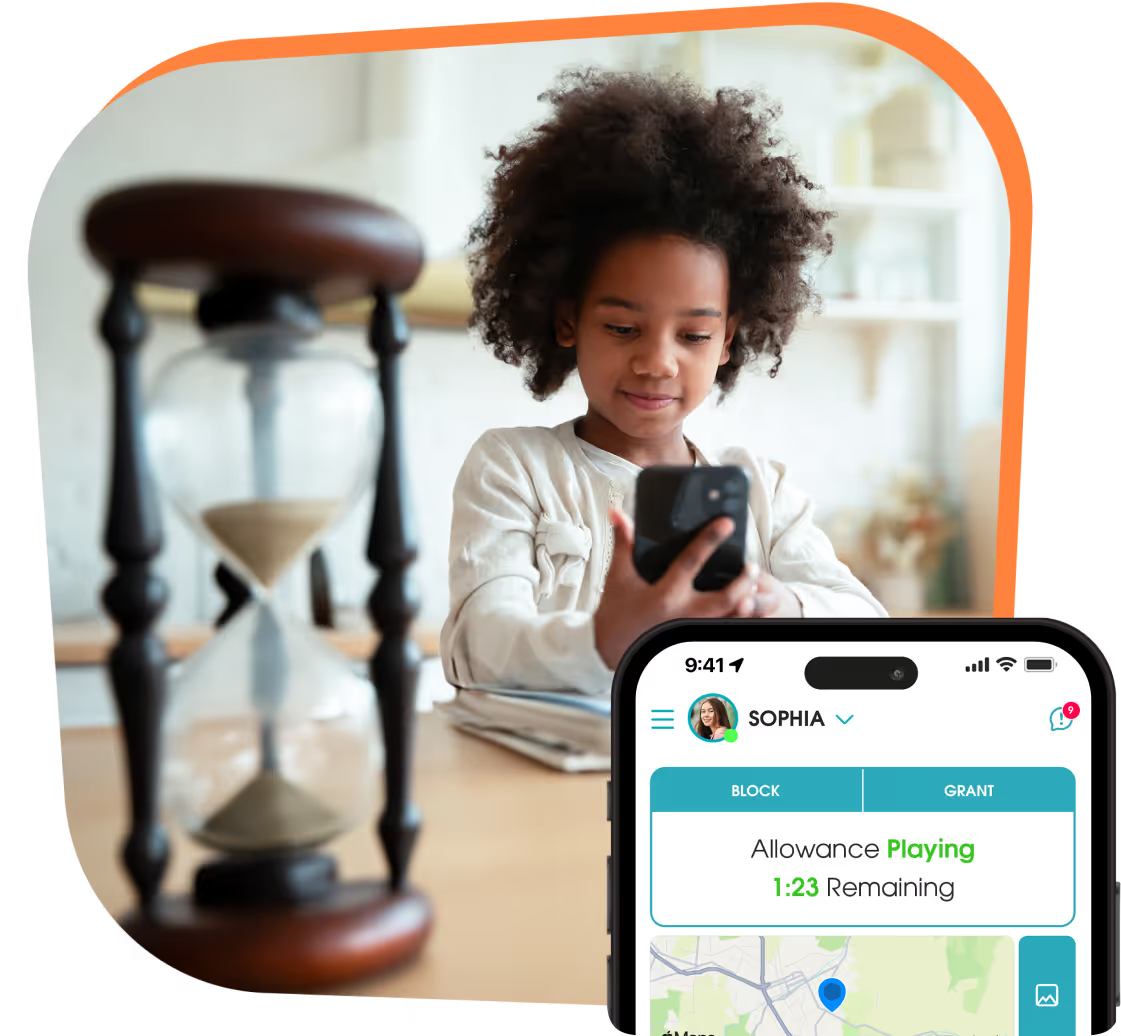The Ultimate Parental Control& Family Locator App
OurPact offers unmatched control over your child’s smartphone and tablet usage. With features like Schedule-Based App Rules, Screen Time Allowance, Family Locator, View, and customizable Apple and Android settings, you can customize how and when your child uses their device.

Featured in



























Encourage Healthy Device Habits with OurPact’s Features

View’s Real-Time Device Monitoring
View provides real-time screen snapshots of your child’s device, while Categories uses OCR to flag inappropriate content in Sexual, Profanity, Violence, Substance Abuse, and Custom categories created by you. Peace of mind, one tap away.
Location Tracking with Instant Alerts
OurPact empowers parents to monitor their child’s iPhone, iPad, and other Apple devices. This tracking app provides check-in and location alerts, making it simple to stay informed about your child’s whereabouts.


Block Harmful Apps with One Touch
Our intuitive App Rules dashboard provides you with insights into each app’s functionality, store rating, and age recommendation, giving you the information you need to ensure a safe and balanced digital experience for your child.
Build Healthy Screen Habits
Screen Time Allowance promotes a balanced lifestyle, where children can benefit from educational and recreational activities on their devices without overindulging. For parents seeking a comprehensive and effective solution for managing screen time, OurPact is the ultimate choice.

Watch OurPact In Action
What Families Are Saying About OurPact
Let us answer your questions

Yes! OurPact can manage your child’s iPhones, iPads, Android Phones and Android Tablets. A child profile can be paired with multiple devices, including a mix of iOS & Android devices.

Absolutely! OurPact prioritizes your family’s privacy with secure encryption and strict data protection policies. We never sell or share personal information.

Yes! OurPact lets you set daily or weekly screen time schedules, so your child’s device use aligns with your family’s routine. Learn more here.

You can block or allow individual apps to help manage distractions and encourage healthy screen habits. Check out App Rules here.

OurPact’s content monitoring feature captures screenshots of your child’s device activity, helping you stay informed about their digital world. Learn more here.

Yes! Our guided setup makes pairing quick and simple, so you can start managing screen time in just a few minutes. Learn how to get started here.

No—once OurPact Jr. is installed and paired, enable “tamperproofing” and your kid cannot remove it without a parent’s approval, ensuring your settings stay in place. Check out Removal Prevention here.
OurPact in the News
Manage Screen Time. Protect Your Family. Stay Connected.
















